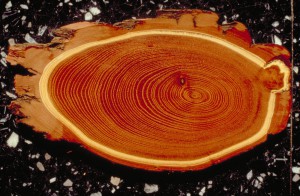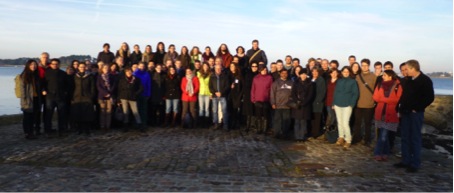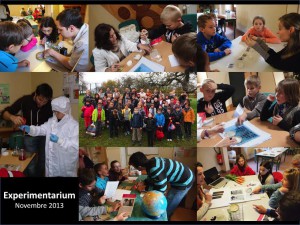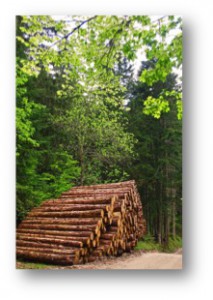 Alexander Kirdyanov et Marina Bryukhanova
Alexander Kirdyanov et Marina Bryukhanova
25 October from 10h00-12h00
Salle Tilleul – INRA Nancy center, Champenoux
_____________________________________________
On October 25th, we are pleased to announce that we will welcome to INRA Alexander Kirdyanov and Marina Bryukhanova from the E. Vaganov group (Sukachev Institute of Forests, Krasnoyarsk). E. Vagonov is a respected and well known researcher in the field of wood formation. He is also known for his book published in 2006.
This seminar is supported by the WADE project and by Labex ARBRE.
Résumé Alexander Kirdyanov:
Dendro-science in Siberia. Case studies from the Tree-Ring Structure Lab (Institute of Forest, Krasnoyarsk, Russia)
Tree-rings were shown to provide comprehensive information on the environmental changes and physiology of tree functioning. The Laboratory of Tree-Ring Structure at the Sukachev Institute of Forest, Krasnoyarsk Russia is focused on extracting and interpreting this information with the goals to understand the impact of environment on tree growth and forest productivity. A short overview of some recent and current studies will be provided to show the main topics of interest and the potential of the Lab: transect studies, use of multi-proxy approach (tree-ring cell structure, density and isotope composition), studies on permafrost, etc. Examples will vary on both spatial (from one stand to continental) and temporal scale (seasonal growth with the resolution of 3-7 days to multi-millennia dendroclimatic reconstructions).
Résumé Marina Bryukhanova:
Growth of trees on permafrost: habitat driven response to climate
Global change is expected to alter boreal forest conditions with far reaching consequences for tree growth in these ecosystems. Within this study we aimed at determining which limiting factors control tree-growth on permafrost under different site conditions.
A tree-ring multi-proxy characterisation of mature Larix gmelinii (Rupr.) Rupr. from a continuous permafrost zone of Siberia (Russia, 64°18′ N, 100°11′ E) was used to identify the physiological principle of responses related to the plant-soil system. Tree-ring width (1975-2009), carbon and oxygen stable isotopes, and xylem structural characteristics (2000-2009) indicated that an increased depth of the soil active layer favors a better exploitation of the available resources.
_____________________________________________
The WADE project
Wood Acclimation to Disturbed Environments
Context —Wood quality is variable and used by dendrochronology as a marker of past events. A better understanding of wood plasticity require new modeling approaches, as tree responses in frequently and strongly changing environments overlay many processes. Therefore, neither the usual modeling of wood properties from variables as tree ring width and cambial age, nor the empirical calibration of a few wood properties as markers of tree functioning and environmental disturbances, deliver robust and reliable predictions.
Objectives — Wade aims at developing a new framework of wood analysis and quality modeling in the context of questions asked by acclimation to canopy disturbance.
Approaches — WADE is based on a multi-scale approach of wood structure and properties from the whole tree to the cell wall ultrastructure and chemical composition, with a large set of techniques including usual and new methods of both dendro-ecology and wood biophysics and chemistry. It includes a careful theoretical analysis of the functional relevance of the selected properties and of their spatio-temporal patterns of variations, using an ecophysiological and biomechanical framework to study how trees respond to changes of both light and mechanical micro-climate after gap opening.
PI: Meriem Fournier (UMR 1092 LERFOB Laboratoire d’Etudes des Ressources Forêts-Bois )
 The fourth gathering for the scientific and technical network of INRA microscopistes was held from 13 to 15 November 2013 in Champenoux. This event was supported by Labex ARBRE.
The fourth gathering for the scientific and technical network of INRA microscopistes was held from 13 to 15 November 2013 in Champenoux. This event was supported by Labex ARBRE.










